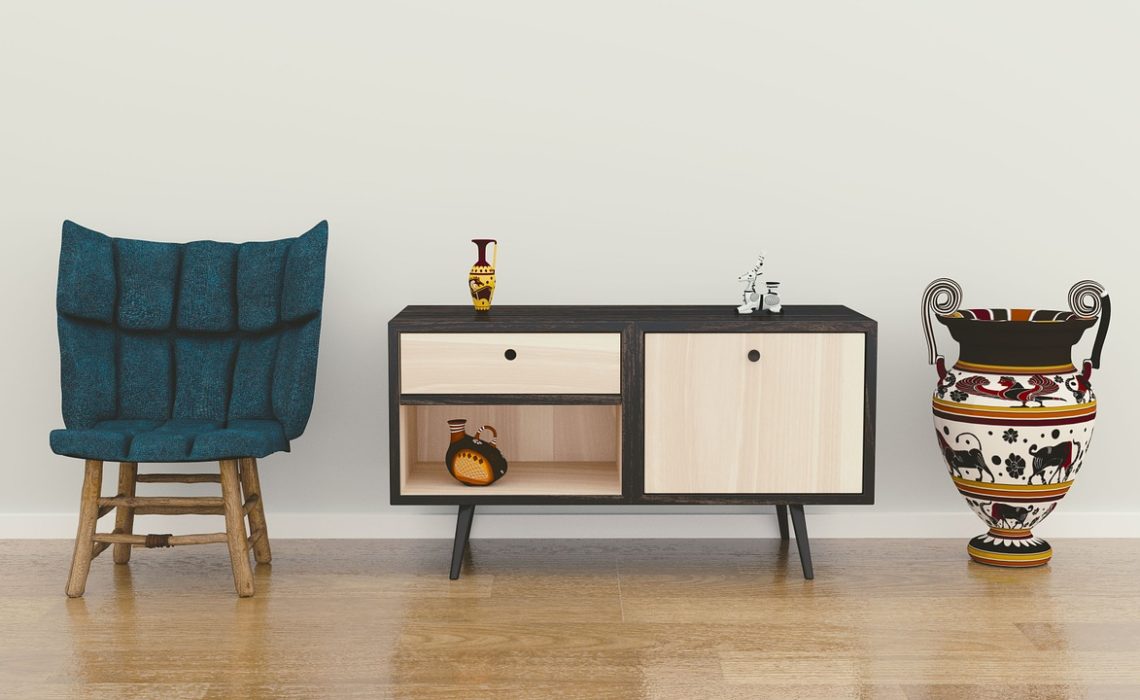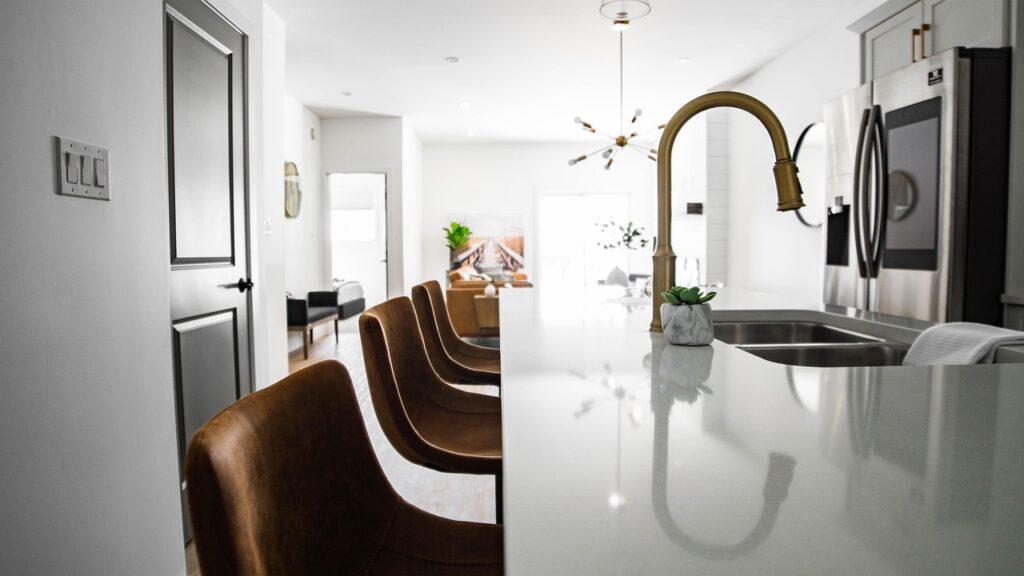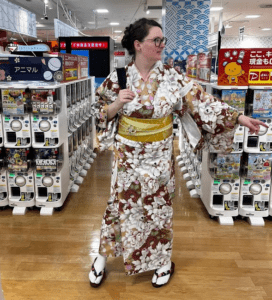
Dernière mise à jour le 8 June 2025
“How should I start decluttering?”, “Which room, which objects should I sort at first?” To you, yeah you, who want to start decluttering but doesn’t know how to start, here are my 5 recommended types of items you should start with. Prepare some empty boxes and let’s get started!
The goal of this post is to allow you to finally start decluttering and discover the big principles that lead an efficient tidying-up, that you’ll be able to reapply for any type of object in the future. Those 5 first categories of items are the easiest to sort, and they can be found at almost anybody’s.
Don’t push this task to later, let’s do it together. Right. Now.
Hi there! I’m a French-speaking writer and blogger and most of my content is in French. Please leave a comment to let me know if you enjoy my articles in English and would like me to continue translating my original posts!
Objects That Need To Be Repaired
They’re hiding in many places and can differ in shape, size and type. They’re in your wardrobe, in your garage, in the garden house, or in random plastic bags at the back of your cupboards.
I used to have a lot of those in my wardrobe. Since I learned about used clothes waste, I started holding on to my mine so I wouldn’t have to throw them away and participate in the global pollution. I’ve also dreamt about being able to sew for as long as I remember. I really wanted to do something great with those, one day, and beat the waste monsters.
After a year, the bag was still there, big as it could be. I still hadn’t started the sewing classes or anything (still haven’t up to this day).
Here’s the rule I apply now to avoid keeping stuff unnecessarily: If an item requires repair or optimisation, either I do it immediately, or I get rid of it. Because if I don’t feel the urge to do it right now, not only will it clutter my house, but it also means that I don’t actually need it! Minimalism is about wondering what you need now, now what you would have in the past, or what you’ll maybe need some day.
For anything that takes a few minutes, do it immediately. For other repairs, ask yourself if you’re the kind of person who commits to heavier, longer repairs and who’s good at learning new ways to repair (it’s ok to not be good at it, you just have to accept it). If you commit, go get the necessary material quick and don’t push the task for weeks, or worse.

Those Things You Keep For “When I Have Some Time”
Hard to swallow pill: We always have the time, we just choose what to prioritize or not.
I’m an hyperactive person with a lot of ideas and new passions that come up really regularly. As such, I was the kind of person who got and kept lots of things related to every new passion or hobby I had (or just considered…). I wanted to do so many things that I was hardly doing anything. But in the meantime, I had bought a lot of things for that activity or to learn about my new interest.
Nowadays, I think a lot more before starting something new, I estimate if I want to (and can) give it sufficient time, if it’ll make me stop other activities, how it fits in my agenda.
We cannot do everything that seems interesting, as much as we cannot own every single thing that appeals to our eyes.
Those items that I had acquired were not bringing me joy as they were reminding me of the “failure” of wanting to do something but never taking the time to do it, or never managing to use them properly. They were the source of a lot of guilt. Moreover, if I never took the time to start using them, I will probably never (new ideas and new opportunities arise regularly, it’s like a pile of books that you wanted to read some time ago, but in the meantime so many new titles were out that the old ones don’t seem interesting anymore).
If you never used the items, it means you never prioritized this activity over other ones. Why would you suddenly do otherwise? Maybe it’s a good time to make a selection in your activities if some are not giving you pleasure anymore, but anyway you cannot do everything all at once.
Now that you made a choice, get rid of what doesn’t fit in your priority planning right now, they will make someone else happy while they won’t guilt you anymore nor clutter your home.

That Place In The Entrance Hall Were You Drop Things You Found In Your Pockets
In French we call that a “vide-poche” (pockets emptier), do you have a nice word for it in English? However you wanna call it, we all have this spot in the house where random things gather and never leave. It can be a drawer, a box, a vase, usually not far from the entrance. This is were everything we don’t know how to tidy ends-up.
Here’s a new tip for decluttering: If an item doesn’t have a proper spot, it might mean you don’t need it.
The best advice to avoid this is to not have such a spot and not have a piece of furniture where you can drop things next to the entrance door (time to get rid of the piece of furniture, or put a big healthy plant on top to prevent from dropping things there).
As for the decluttering… Everything that belongs elsewhere (hair ties, nails…) have to join their siblings, the rest probably has no utility whatsoever.
Clothes That Are Too Small
Tricky topic! I’ve seen so many people (younger me included) hold on to their small clothes, as if it would force them to get back their thinner figure of the old days. This might take some time to accept, but my best advice is to stop trying to fit in someone else’s clothes: you are not that person anymore, and that’s ok.
Get rid of this source of guilt, shame and discomfort and treat yourself with clothes that are actually your size and in which you feel good, as you are, now. My bet is you have been keeping those for years. What are the odds you will finally manage to put them back on, and at what cost would it be? Even if you were able to wear them again, will they still be at your taste by then?
It seems easy to say, but you can reach this state of peacefulness with your body. I’ve been there. I didn’t want to get rid of those clothes, I would lose some weight eventually, why would I need to change my wardrobe?
Well, clothes that make you feel ugly are the worst motivation, the chances that you put on weight instead of losing it are high when you don’t accept your body. Stop punishing yourself for being you. And if ever you lose some weight, you’ll have the opportunity to buy new clothes, at your tastes of the moment, at your exact size.

The Kitchen
You know those people who never have a kitchen big enough, whatever its size? Who say their kitchen is always dirty and messy because it doesn’t have enough space? Maybe you are that person?
Kitchenware has grown in all shapes for the last decades, but how many of these items do you actually use on a regular basis, and how many could you get rid of just by using other, less specific but more versatile tools?
I like to start decluttering with the kitchen as it’s a highly functional and unemotional room for most people, and also a place that most people hate tidying, cleaning, and even using. By having less stuff, it all becomes way easier.
It’s time to sort all your items by purpose and keep only those that you often use, that you like to use, that are in a good state. For more seldom use, ask yourself if you could borrow the stuff from a neighbour, friend or family member. Although I’m always trying to avoid buying new things, in some cases, it might be useful to by a “one-in-all” or a multi-purpose item, to replace several that you do use but that take a lot of space.
Let’s Recap Basic Rules For Decluttering
- When decluttering, think of you current, actual needs.
- Accept the idea that it’s not possible to possess everything that we like and not possible to take part in all the activities that seem interesting, it’s ok (let’s get rid of FOMO). It’s better to make smart choices and live them to the fullest than trying to be at too many places at onces.
- Avoid places where you can drop anything and forget about it in your house.
- Objects that don’t have a fix spot might not belong in your home. Give a place to every item.
- Prefer objects that are multi-purpose to gadgets and very specific items, unless you do have need for it on a regular basis.
- Only keep stuff you like to use and that is still working and in good condition.
- Tidy as much as you can (ideally, everything) inside furniture, not on top. Don’t buy new pieces of furniture when it doesn’t fit, but declutter to fit the space you live in.

This post is such a smart and compassionate guide for beginners! I love how you focus on emotionally lighter categories to build momentum especially the ‘vide-poche’ tip and the reminder that repair intentions often become clutter. Your writing is both practical and empowering. Thank you for making decluttering feel like a journey of self-acceptance!